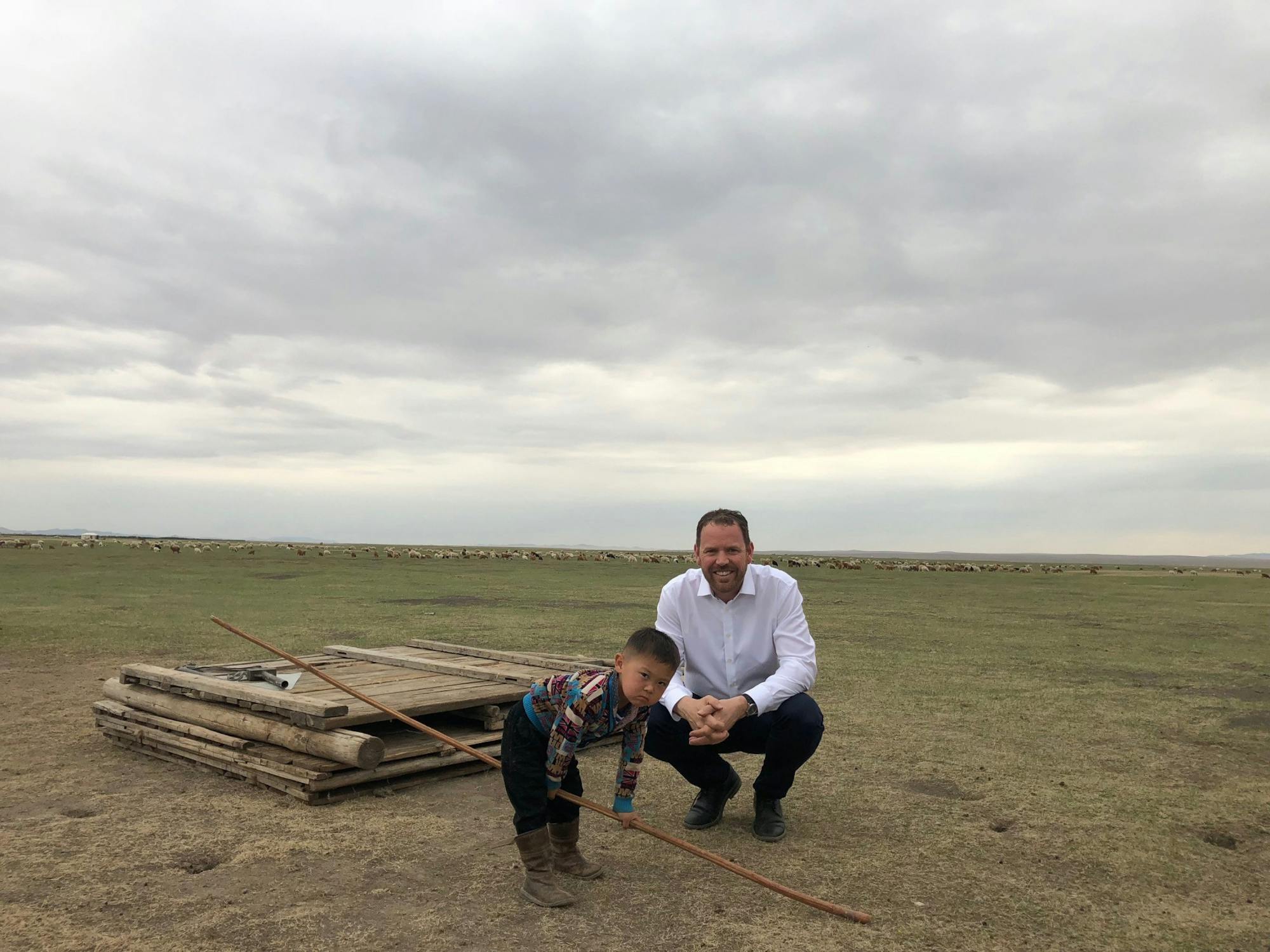

for Walpole members and
non-members available now
at The Londoner



The story behind exquisite cashmere jumpers spans continents and cultures. The cashmere supply chain stretches across vast expanses of land, covering an area of Northern China and Mongolia larger than Europe. Goats are raised by tens of thousands of small scale farmers and nomadic herders, many of whom live in poverty, lacking access to the knowledge and resources to improve their practices. A herder typically raises 100 goats, with each goat producing around 200gsm of fibre. However, with over 1.2 million goats required to produce Johnstons’ cashmere alone, fibre from many thousands of goats is combined for washing, before even reaching production, creating a serious traceability challenge. In addition, producing the finest cashmere means carefully blending the cashmere from multiple sources to achieve the perfect mix for each product.
Johnstons is addressing this challenge through on-the-ground capacity building and cross-sector collaboration. And as a fully vertically integrated manufacturer from fibre to finished product, it has a significant opportunity to influence change.
“We are fortunate to be able to control our processes to a far higher degree than many other brands,” says Johnstons’ CEO, Simon Cotton. “We see it as our responsibility to use our position to help lead the way on responsible cashmere.”
One of the key challenges of raising cashmere goats is the risk of overgrazing, which in turn depletes the soil, eventually reducing its ability to capture carbon. In addition, global warming in the high altitude areas where cashmere is produced is far higher than the global averages, creating further pressures on grasslands.
To help Mongolian herders improve their practices, Johnstons funded the first education programme for the children of Mongolian herder families in sustainable grassland management. Over 500 pupils have already taken part, taught by an experienced teacher trained in the subject, and using text books developed by Johnstons in collaboration with the Sustainable Fibre Alliance (SFA).
“The programme uses traditional Mongolian nomadic culture as its basis,” Cotton explains. “This is a great example of a long-term solution to a systemic problem.”
In 2020, building on its participation in an initial SFA-led trial to prove traceability from the herder to the dehairer, Johnstons took its responsible cashmere ambition to the next level. Working closely with herders across Mongolia, it helped to ensure that herders of around 25,000 goats supplying its cashmere fibre could achieve SFA certification by adhering to rigorous sustainability and animal welfare standards, from collection to finished product. While this represents a small proportion of Johnstons’ overall demand, it proves that traceability for cashmere can be achieved.
To reach scale, Cotton highlights the need to find a consistent approach that can be applied in both China and Mongolia. Johnstons is working closely with the SFA to define a realistic roadmap to reach 100% certified cashmere as rapidly as possible. And with 30 companies now signed up to SFA membership, change is underway throughout the supply chain, helping to advance the sector’s journey to responsible cashmere.
“We have made good progress and we’re fortunate that cashmere herders and farmers take exceptionally good care of their goats,” concludes Cotton. “But we know there is still work to do, and customers require reassurance that we’re addressing fundamental climate and environmental issues. I hope to see the whole sector move to standards like the SFA standard, so the grasslands we rely on for cashmere can be preserved for future generations.”
Johnstons’ focus on responsible cashmere is just one component of its broader sustainability strategy, through which the company is addressing every aspect of its products lifecycle from raw material sourcing to production, distribution, consumer use and circular initiatives to give materials a new lease of life.
johnstonsofelgin.com





